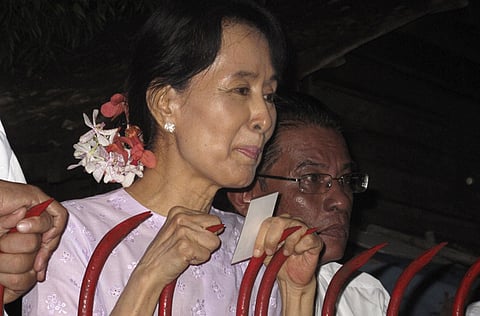Suu Kyi's release is only a first step
Myanmar's leaders are fooling themselves if they believe this token gesture will suffice

As authorities in Myanmar went inside to read the order to release Aung San Suu Kyi from house arrest yesterday, crowds of restless supporters waited outside for a glimpse of one of the world's most iconic pro-democracy leaders. ‘The Lady', as she is known to her admirers, has been under detention for 15 of the past 21 years. This despite the fact that her party, the National League for Democracy, won a landslide in the country's first election 20 years ago, but was never allowed to take power by the ruling junta.
"There is a time to be quiet and a time to talk. People must work in unison. Only then can we achieve our goal," she told the crowd upon her release.
It would be a mistake to think of Suu Kyi, daughter of Myanmar's independence hero General Aung San, as someone from the past, not relevant to the present generation of pro-democracy activists. The soft-spoken 65-year-old, who was awarded the Nobel Peace Prize in 1991 for her peaceful struggle, still symbolises the Myanmarese people's quest for democracy, especially on the international stage. The awful dictatorship in the benighted nation also recognises Suu Kyi's appeal, and has hence done all in its power to severely limit her access to supporters and the world at large. In typical style, it also refused to grant a Myanmar visa to her dying British husband in 1999, who wanted to see her one last time.
It is quite possible that the generals' move to release Suu Kyi is part of their efforts to cushion the impact of widespread international criticism of the farce that passed for an "election" in Myanmar last Sunday. But however much they try, until and unless the generals allow genuine democracy to emerge in Myanmar, the country will continue to be seen as an international pariah.



